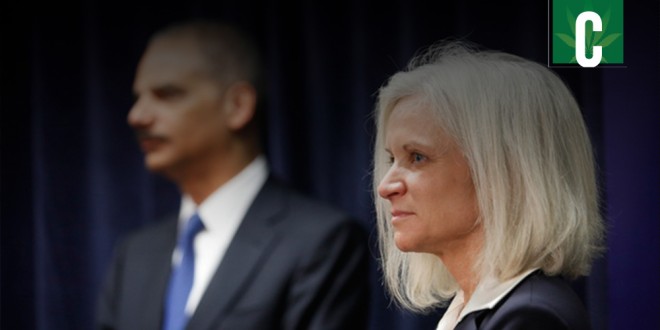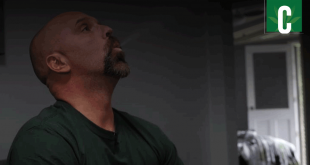A federal prosecutor whose district covers the Bay Area has quit her post, handing marijuana proponents a big victory.
 Melinda Haag served as the U.S. attorney for the San Francisco area, a position she used to launch aggressive legal attacks against dispensaries, growers, and other medical weed providers. Haag announced her resignation in late July; she will leave effective Sept. 1.
Melinda Haag served as the U.S. attorney for the San Francisco area, a position she used to launch aggressive legal attacks against dispensaries, growers, and other medical weed providers. Haag announced her resignation in late July; she will leave effective Sept. 1.
She told her staffers she plans to spend more time with family, but otherwise provided no explanation for her departure. Her stance against MMJ likely had something to do with it, however.
Haag made it her mission to shutter dispensaries across a wide swath of California. Medical marijuana is legal in the state, but the drug is barred for any use under federal law. Haag used those statutes to try to kill the local MMJ industry.
Defiant refusal to follow president’s orders
President Barack Obama and even Congress told Haag to back off, but she refused, going rogue for several months. The Department of Justice backed her, even after Congress passed laws aimed at stopping her.
But Haag’s unwillingness to bend to lawmakers’ will ultimately made her a target, even among her supporters at the DOJ. She was one of a handful of U.S. attorneys who have repeatedly refused to reform their anti-cannabis crusades.
Haag aimed much of her authority at the Harborside Health Center, a massive dispensary based in Oakland. The community has since rallied around the pot shop, with city leaders joining a lawsuit to stop Haag’s efforts.
Abuse of power
 She used her power as prosecutor to seize untold millions of dollars from innocent dispensary owners, growers, and landlords. Most of that money was never returned, even after Haag failed to file charges.
She used her power as prosecutor to seize untold millions of dollars from innocent dispensary owners, growers, and landlords. Most of that money was never returned, even after Haag failed to file charges.
Haag had an impressive record of refusing to follow her bosses’ orders. After Obama declared a new, more lenient approach to medical weed under federal law, Haag insisted her ongoing MMJ cases wouldn’t be affected. And when Congress passed laws to stop the persecution of medicinal pot, Haag and the DOJ simply asserted the legislation didn’t apply to them.
Haag isn’t the only high-ranking anti-drug figure to lose her job recently. Michelle Leonhart quit her post as head of the DEA earlier this year, after she became entangled in a scandal involving federal agents, Colombian prostitutes, and international drug traffickers.
No one in the Obama administration has publicly connected the dots, but the resignations could signal a sea change in the way federal officials approach cannabis. The two biggest impediments to reform within the justice system are now gone.
The DOJ hasn’t announced a replacement for Haag. Obama’s choice would have to clear Senate approval, and support for MMJ reform is strong there. In other words, it’s unlikely the new U.S. attorney would pursue a similar hard-line agenda.
Haag’s decision is a big win for the pro-weed crowd. On a more practical level, it could spell victory for Harborside and its activist owner, Steve DeAngelo. With Haag out of the way, the odds for further change, in California and elsewhere, can only improve.
 California Marijuana Market Breaking "Marijuana News" from CA
California Marijuana Market Breaking "Marijuana News" from CA





